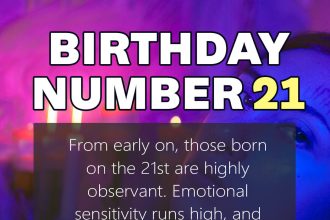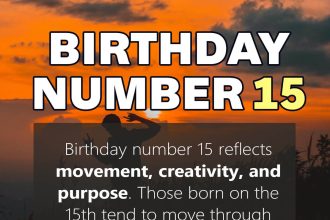Rehabilitation is more than a process of healing the body, it’s a journey into the depths of self-awareness and personal transformation. While evidence-based treatments like therapy and medication-assisted detox are important in overcoming substance use disorders, many individuals seek additional methods to explore their identity, motivations, and emotional blocks. One of the lesser-known but increasingly explored tools in this realm is numerology.
Numerology is the ancient study of the mystical significance of numbers and how they relate to personality, destiny, and life’s path. While not considered a clinical science, numerology serves as a reflective practice that can enhance the introspective work often encouraged during rehab. For those on a healing journey, it offers another lens through which to view patterns, choices, and potential for growth. When integrated thoughtfully into the recovery process, numerology doesn’t replace traditional treatment but complements it, encouraging deeper self-reflection and a renewed sense of purpose.
Connecting Numerology With Recovery Work
At first glance, numerology might seem unrelated to the structured environment of addiction treatment. Many rehab centers are expanding their holistic services to include spiritual and metaphysical resources that resonate with patients seeking clarity beyond conventional therapies. Options such as Lake Forest drug rehab often incorporate complementary approaches to help clients explore identity and intention from multiple angles. Numerology can be particularly effective for those who have lost a sense of self due to years of substance use or trauma. During early recovery, when emotions often resurface and long-buried beliefs come into question, the symbolic meaning of numbers may provide insights that help individuals reconnect with themselves.
Understanding one’s “Life Path Number” derived from a birthdate can spark questions such as: Why do I respond to conflict this way? What drives my decisions? What am I truly meant to contribute to the world? These inquiries can be starting points for journal prompts, therapy discussions, or meditation practices.
Numerology as a Mirror of Behavior Patterns
Much like psychological assessments that identify personality traits, numerology reflects patterns in behavior, communication, and decision-making. It doesn’t dictate one’s fate but invites curiosity. Life Path Numbers, Destiny Numbers, and Soul Urge Numbers are each derived from different aspects of a person’s birth date or full name. These numbers are said to reveal core strengths, hidden fears, and innate tendencies.
For example, someone with a Life Path Number 5 might be drawn to freedom, adventure, and change, but could struggle with commitment or routine. In the context of recovery, this self-awareness can highlight why certain environments trigger restlessness or relapse urges. A Number 2 might prioritize harmony and relationships, making them susceptible to codependency or enabling behaviors.
Understanding these tendencies doesn’t box anyone in, it shines a light on recurring themes that might otherwise go unnoticed. As clients work with counselors to uncover the emotional roots of addiction, numerology becomes a creative companion in mapping the terrain of self-discovery.
Encouraging Mindfulness and Daily Reflection
Many rehab programs promote journaling, meditation, or daily affirmation exercises to help individuals stay grounded. Numerology can be easily incorporated into these practices. Some clients choose to meditate on the qualities associated with their core numbers, while others write daily intentions based on symbolic interpretations of the day’s date.
For instance, if today’s date reduces numerologically to the number 3, often associated with creativity and communication, it might be a fitting time to express feelings through art or write a letter to one’s future self. On a day governed by the number 7, which symbolizes introspection, the focus may shift toward deeper emotional work or solitude.
These small integrations foster mindfulness and create structure in daily recovery routines. They offer clients a sense of rhythm, intention, and agency, helpful tools when rebuilding a life that once felt out of control.
Supporting Spiritual Exploration
Recovery often reignites spiritual questions: Who am I? What is my purpose? What role does faith or the universe play in my healing? Numerology doesn’t prescribe a belief system but invites contemplation. Its universal symbols and archetypes offer gentle guidance without dogma, making it accessible to people from all walks of life.
For clients resistant to organized religion but open to spiritual exploration, numerology serves as a non-threatening entry point. It validates the idea that their life has meaning and that they have unique traits worth embracing. This reassurance can be powerful during times of emotional vulnerability and change.
Creating Dialogue and Connection
In group settings, numerology can foster bonding among clients who might otherwise hesitate to open up. When used as an optional or elective activity, it often sparks lighthearted conversations and thoughtful reflection. Sharing insights about personal numbers can lead to deeper discussions about fears, values, or life stories, encouraging empathy and connection.
These shared moments build trust and remind participants that they’re not alone in their journey. Many people find it easier to express themselves through metaphors and symbols when talking directly about pain or trauma feels too raw. Numerology provides a bridge between the personal and the universal.
For individuals committed to lasting recovery, every tool that fosters self-understanding is worth considering. Numerology may not provide all the answers, but it can ask the right questions, the ones that spark change, inspire healing, and illuminate the path forward.












